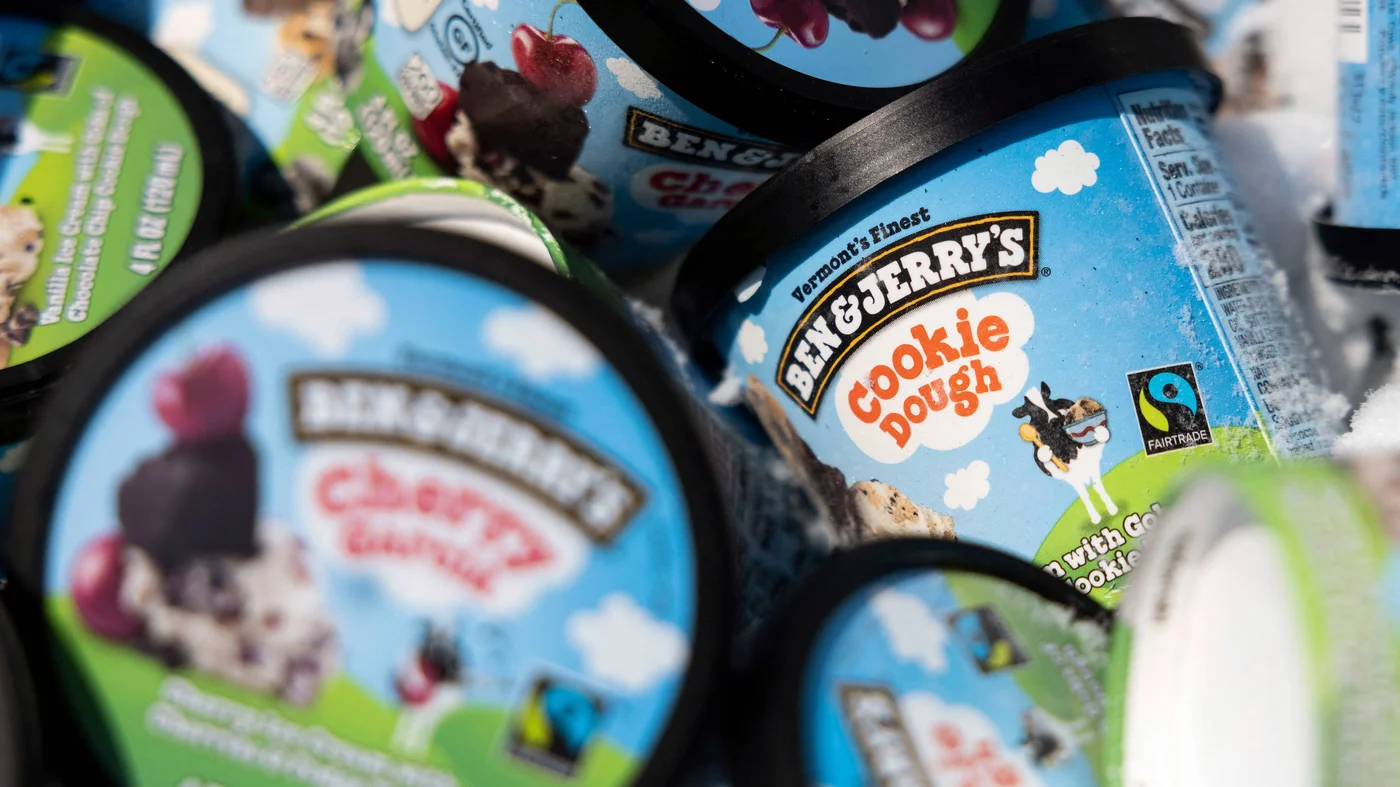Ben Cohen and Jerry Greenfield want to reacquire the ice cream brand they founded in 1978, with the caveat they would retain autonomy over their social mission (AFP)
Ben & Jerry’s has started a public campaign to try to separate from its parent company so it can freely speak about the war in Gaza, racial justice, and other issues. Its parent company, Magnum, has refused to sell the iconic ice cream brand.
The war between the ice-cream giants comes as Ben & Jerry’s became part of the Magnum Ice Cream company on Tuesday and Unilever prepares to spin off Magnum into a separate public company, which includes brands such as Ben & Jerry’s, Walls and Cornetto, in mid-November.
Magnum CEO Peter ter Kulve told Reuters on Wednesday that the company would not be selling the social justice-oriented ice cream brand.
“Ben & Jerry’s is not for sale,” Kulve said. He said he was not “privvy” to any knowledge that founders Ben Cohen and Jerry Greenfield tried to buy the brand from Unilever in 2024.
This week, Cohen and Greenfield launched a new campaign to reacquire the ice cream brand they founded in 1978 but sold to Unilever in 2000, with the caveat that they would retain autonomy over their social mission.
They have claimed they are being muzzled by the conglomerate over causes they support.
In a social media post on X on Wednesday, Cohen wrote, “@MagnumIceCream is ripping the heart out of @benandjerrys – set us free!” with the hashtag #Freebenandjerrys” and a plea to his followers to share widely.
The post included a video from Cohen, wearing a T-shirt with blood dripping from a heart split in two, saying that Unilever wouldn’t let Ben & Jerry’s speak out in support of student protestors, against the genocide in Gaza, and against racial justice.
“Ben & Jerry’s has been trying to speak out to support student protestors. They wouldn’t let us do that. We’ve been trying to speak out against the genocide in Gaza. They wouldn’t let us do that. We’ve been trying to speak out against racial injustice. They silenced us on that.”
Cohen added that all they were asking for was for Unilever to sell the company to a group that supported Ben & Jerry’s values.
In a letter to the Magnum board on Tuesday, Cohen and Greenfield wrote that they had a radical business idea of making a wonderful product that stood up for “progressive values and social justice”.
However, they expressed concern that their social mission had been impeded at Unilever and “the commitments made to us, our employees, and our customers are being eroded”, the pair wrote.
“For several years now the voice of Ben & Jerry’s has been silenced by Unilever, particularly when the brand has tried to speak out about social justice and unjust wars,” they continued.
The pair then urged the board to allow Ben & Jerry’s to operate as an independently owned company again, supported by socially-aligned investors, and be allowed “to honor its mission without compromise”.
Long battle
It is the latest scoop in a longstanding battle between Ben & Jerry’s and Unilever. In November, Ben & Jerry’s sued its parent company, Unilever, over accusations that it silenced the ice cream maker’s attempts to express support for a ceasefire in Gaza and support for Palestinian refugees.
Ben & Jerry’s said it was silenced four separate times when it tried calling for a ceasefire in Gaza, advocating for halting US military aid to Israel, supporting university students protesting against Israel’s war on Gaza, and supporting the safe passage of Palestinian refugees from Gaza to the UK.
In the lawsuit, Ben & Jerry’s also said Kulve, Unilever’s head of ice cream at the time, said he was concerned that the company being vocal on the war on Gaza could lead to a “continued perception of anti-Semitism”.
Tensions between Ben & Jerry’s and Unilever have brewed for years and can be traced back to 2021, when Ben & Jerry’s said it would stop selling its products in illegal Israeli settlements in the occupied West Bank. It said at the time that selling its products in those settlements was “inconsistent” with the company’s values.
Cohen, 74, has been vocal about the war on Gaza and was arrested in May after he protested against the US giving military aid to Gaza at a Senate committee hearing on Capitol Hill.
MEE Staff














